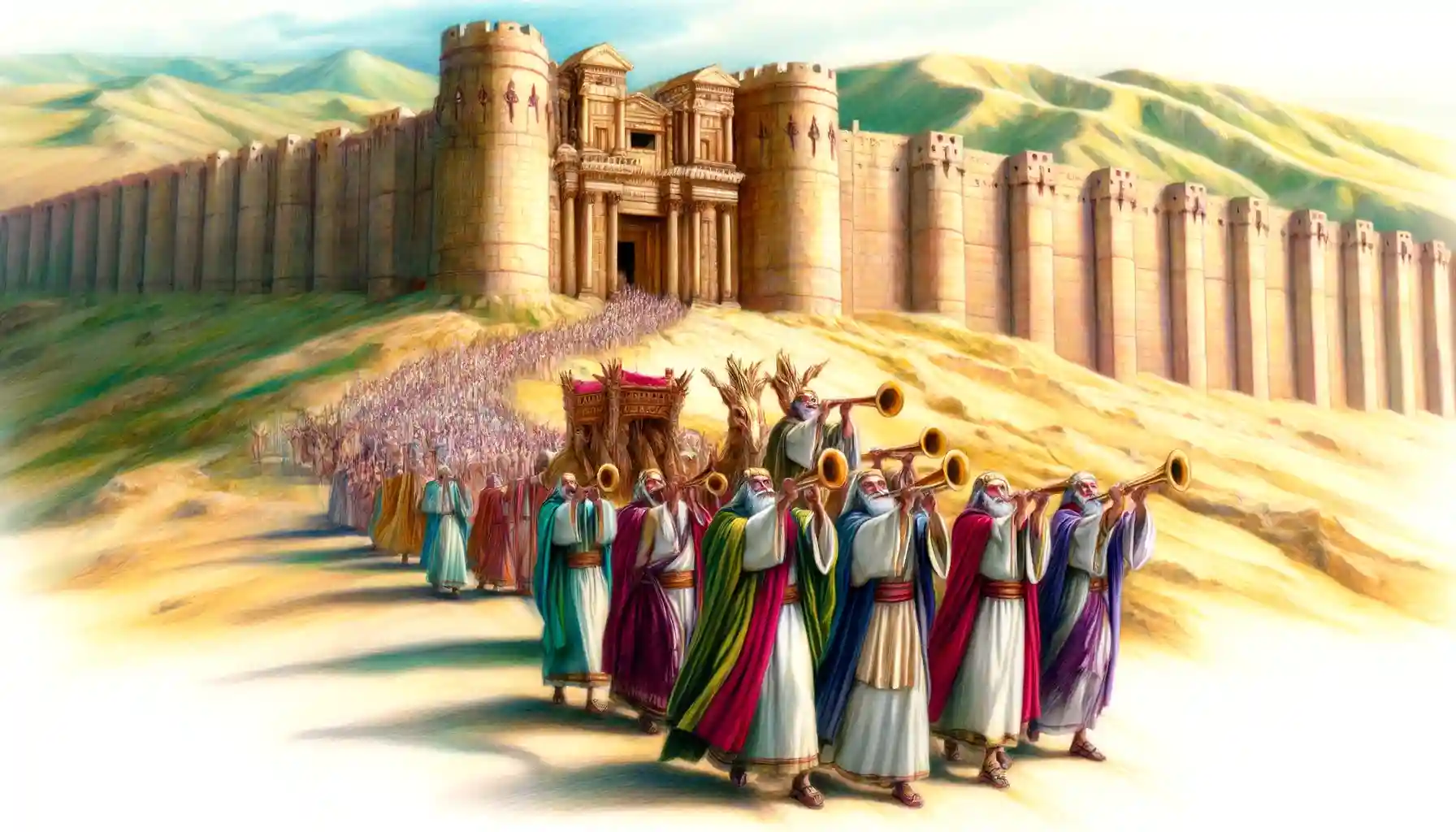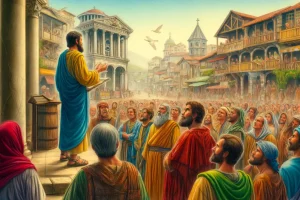
The Book of Joshua
The Book of Joshua is a pivotal text in the Hebrew Bible and the Old Testament, documenting the Israelites’ conquest and settlement of the Promised Land under Joshua’s leadership. Here are some concise key facts about the Book of Joshua:
- Title and Position: Named after its main character, Joshua, the successor of Moses, this book is the sixth in the Old Testament and the first in the historical books of the Bible.
- Authorship and Date: While traditionally attributed to Joshua himself, modern scholarship suggests that the book was likely composed during the monarchy period, possibly as late as the 7th century BC.
- Structure and Content: The Book of Joshua can be divided into three main parts:
- Conquest of Canaan (Chapters 1-12): Details Joshua’s military campaigns to conquer Canaan, including the crossing of the Jordan River, the fall of Jericho, and battles against various Canaanite kings.
- Division of the Land (Chapters 13-21): Describes the allocation of the land among the twelve tribes of Israel, with specific cities designated for the Levites and cities of refuge established.
- Covenant Renewal (Chapters 22-24): Focuses on the establishment of a covenant at Shechem, where Joshua delivers his final speeches and the people renew their commitment to serve God alone.
- Main Themes:
- Leadership and Obedience: Joshua’s leadership is marked by his faithfulness and obedience to God’s commands, serving as a model for the Israelites.
- God’s Faithfulness: The narrative repeatedly underscores God’s faithfulness in fulfilling His promises to Abraham, Isaac, and Jacob by giving their descendants the land of Canaan.
- Covenant and Commitment: The theme of covenant is central, culminating in Joshua’s famous challenge: “Choose this day whom you will serve… as for me and my house, we will serve the Lord” (Joshua 24:15).
- Theological Significance:
- Joshua is often seen as a typological figure of Jesus Christ, whose name he shares (Joshua is the Hebrew form of Jesus), representing themes of salvation and rest.
- The book explores the concept of “holy war”, presenting a theological framework for understanding the conquest as part of God’s plan for Israel.
- Modern Relevance: Joshua challenges modern readers to consider themes of leadership, faith, and the consequences of obedience and disobedience to God’s commands.
The Book of Joshua is a foundational text in the Hebrew Bible that narrates the conquest and settlement of Canaan by the Israelites under Joshua’s leadership. It bridges the Pentateuch’s narratives of the Mosaic Law and the wanderings in the wilderness with the subsequent historical settlement in the Promised Land. This analysis delves into its structure, content, major themes, and theological significance.
Structure and Content
1. Conquest of the Land (Chapters 1-12):
- Transition of Leadership: The book begins with God commissioning Joshua to lead the Israelites following Moses’ death, emphasizing courage and obedience to the law (Joshua 1).
- Crossing the Jordan: Mirroring the Red Sea crossing, this event symbolizes God’s ongoing salvation and the start of a new chapter (Joshua 3-4).
- Fall of Jericho and Ai: These chapters (Joshua 6-8) highlight the divine strategy in battle and the severe consequences of disobedience, as seen in Achan’s sin.
- Southern and Northern Campaigns: Joshua leads a series of military conquests, which are summarized succinctly, indicating a sweeping victory attributed to divine intervention (Joshua 9-11).
2. Division of the Land (Chapters 13-21):
- Tribal Allotments: The detailed distribution of land among the tribes (Joshua 13-19) reflects God’s promise to the patriarchs and the importance of territorial inheritance in establishing Israel’s national identity.
- Cities of Refuge and Levitical Cities: These allocations (Joshua 20-21) emphasize justice and sanctuary within the community, as well as the special role of the Levites.
3. Covenant Renewal and Joshua’s Farewell (Chapters 22-24):
- Eastern Tribes’ Altar: A misunderstanding over an altar built by the eastern tribes nearly leads to conflict but ultimately reaffirms the unity of Israel under one God (Joshua 22).
- Covenant Renewal at Shechem: Joshua’s final speeches (Chapters 23-24) remind the people of God’s actions on their behalf and challenge them to reaffirm their commitment to obey God exclusively.
Major Themes
1. Leadership and Obedience: Joshua exemplifies the qualities of a leader who is faithful to God. His leadership is marked by adherence to God’s commands, demonstrating the biblical ideal that successful leadership depends on obedience to divine direction.
2. God’s Faithfulness: The book underscores God’s fidelity to His promises. The successful conquest and peaceful settlement reflect God’s commitment to the promises made to Abraham, Isaac, and Jacob.
3. Holy War: The concept of holy war in Joshua, where warfare is initiated and conducted under divine command, reflects a theological perspective unique to the ancient context, emphasizing the holiness of God and His sovereignty over evil and idolatry.
4. Covenant Identity: The renewal of the covenant in the latter chapters links the narrative back to Sinai and forward to the future kings and prophets. It reinforces the community’s identity as a people bound to God not only by faith and history but by a legal and perpetual covenant.
Theological Significance
Joshua is pivotal for understanding the narrative flow from the Torah into the historical books. It presents the land not just as a divine gift but also as a covenantal mandate requiring faithful obedience. Theologically, Joshua challenges believers to reflect on God’s promises and their fulfillment, the moral complexities of divine commands, and the nature of biblical leadership.
Conclusion
The Book of Joshua, with its rich narratives and profound themes, offers insights into the complexities of faith, leadership, and divine justice. It serves both as a historical account and a theological treatise, encouraging reflection on God’s promises, the responsibilities of leadership, and the enduring significance of covenant fidelity.
Tag:Achan's sin, cities of refuge, Conquest of Canaan, Covenant Renewal, crossing the Jordan, divine strategy, fall of Jericho, God's faithfulness, holy war, inheritance, Joshua, Leadership, Levitical cities, military campaigns, obedience to God, Promised Land, Shechem, tribal allotments, tribal unity



